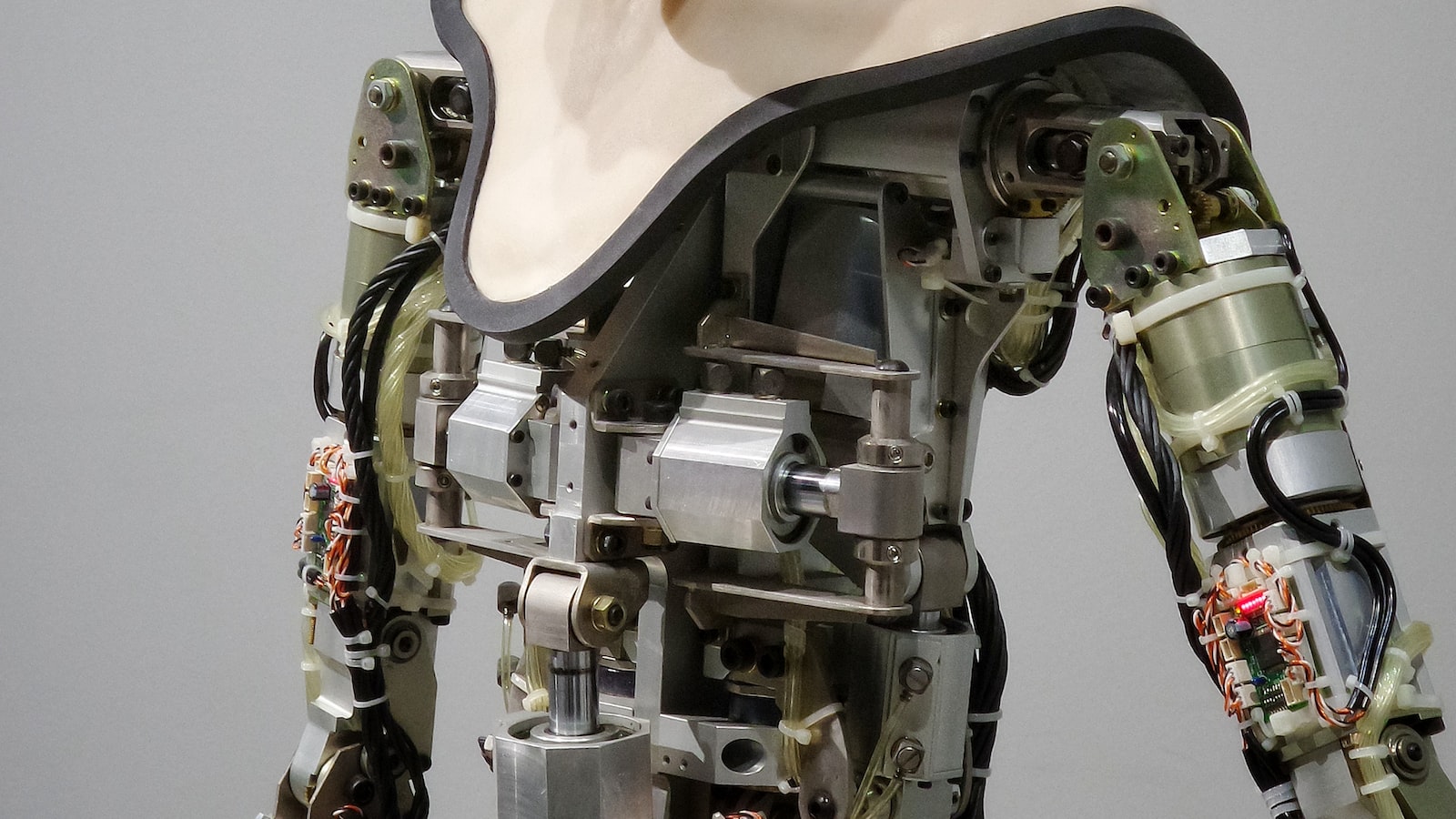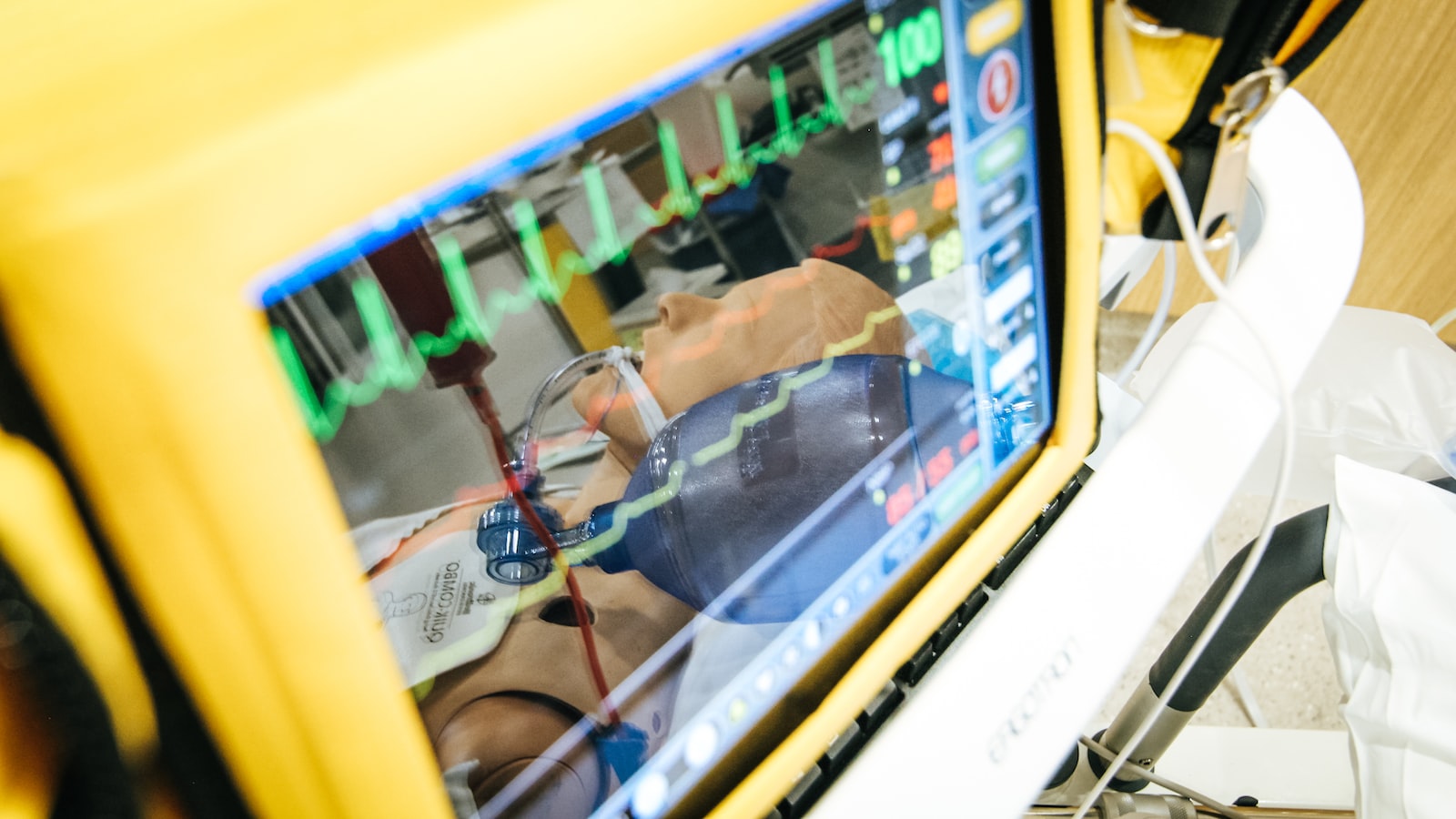In a world driven by technological advancements, exhilarating possibilities emerge at the intersection of artificial intelligence and the field of medical and healthcare services. Today, we embark on a contemplative journey into the realm of the unforeseen. We dare to inquire: can undress AI – the mesmerizing technology that has been transforming our visual experiences – find a purposeful home within the delicate confines of healthcare? With a sense of curiosity and an unbiased gaze, we unravel the enigma that lies before us. Join us as we explore the potential of this groundbreaking fusion, inching closer to unveiling new dimensions in the realm of providing optimal medical care for all.
Table of Contents
- Understanding Undress AI and its Potential in the Medical Field
- Exploring the Practical Applications and Benefits of Undress AI in Healthcare
- Addressing Ethical and Privacy Concerns in Integrating Undress AI into Medical Practices
- Recommendations for Safeguarding Patient Privacy and Ensuring Accurate Results with Undress AI in Healthcare
- Frequently Asked Questions (FAQ’s)
- To Conclude

Understanding Undress AI and its Potential in the Medical Field
Can Undress AI Be Used for Medical or Healthcare Purposes?
Undress AI, an innovative technology powered by artificial intelligence, has been making waves in various industries, and its potential in the field of medicine and healthcare is no exception. This groundbreaking tool offers countless possibilities for revolutionizing diagnostics, treatment, and patient care.
One of the key applications of Undress AI in the medical field is rapid and precise diagnosis. Traditional diagnostic methods often involve time-consuming and invasive tests, leading to delayed treatment and increased patient discomfort. Undress AI, with its advanced algorithms, could potentially analyze medical images such as X-rays, MRIs, and CT scans with incredible accuracy, expediting the diagnosis process and enabling early intervention.
==>CLICK HERE TO UNDRESS<==
Furthermore, Undress AI holds the potential to enhance surgical procedures and post-operative care. By simulating surgical scenarios, this AI-powered technology can assist surgeons in planning and executing complex operations with improved precision and efficiency. Additionally, it can provide real-time monitoring during procedures, enabling surgeons to make educated decisions based on critical data. Moreover, in post-operative care, Undress AI can analyze patient vitals and monitor recovery progress, alerting healthcare professionals to any potential complications or deviations from the expected recovery trajectory.

Exploring the Practical Applications and Benefits of Undress AI in Healthcare
Can Undress AI Be Used for Medical or Healthcare Purposes?
Undress AI, an innovative technology that utilizes artificial intelligence and computer vision algorithms, has the potential to revolutionize various industries, including healthcare. With its advanced capabilities, Undress AI aims to provide accurate and efficient solutions for medical professionals and patients alike.
One of the practical applications of Undress AI in healthcare is in the field of dermatology. Skin diseases and disorders are common, and the early detection and diagnosis of these conditions are crucial for effective treatment. Undress AI can analyze images of the skin and identify potential abnormalities, assisting dermatologists in making accurate diagnoses and developing personalized treatment plans. This technology has the potential to save time, reduce errors, and improve patient outcomes.
Benefits of Undress AI in Healthcare
Undress AI offers several benefits in the realm of healthcare:
- Efficiency: By automating certain tasks, Undress AI can streamline medical processes, allowing healthcare professionals to focus more on patient care.
- Accuracy: With its advanced algorithms, Undress AI can provide accurate assessments and diagnoses, reducing the risk of misdiagnosis.
- Time-saving: The automated analysis and identification capabilities of Undress AI can significantly shorten the time required for medical evaluations and treatment planning.
- Accessibility: Undress AI can potentially improve access to healthcare, especially in remote areas where dermatologists and specialists may be scarce.
- Empowerment: Undress AI enables patients to monitor their own skin health, facilitating early detection and potentially preventing the escalation of certain conditions.
In conclusion, Undress AI has the potential to transform healthcare practices by providing accurate and efficient solutions for various medical purposes. From assisting dermatologists in skin disease diagnosis to empowering patients to take charge of their own health, this innovative technology brings numerous benefits to the healthcare industry. As further advancements are made, Undress AI could revolutionize medical processes and improve patient outcomes on a global scale.

Addressing Ethical and Privacy Concerns in Integrating Undress AI into Medical Practices
Undress AI, the revolutionary artificial intelligence technology, has sparked interest across various industries due to its powerful capabilities. While the potential applications are vast, one question that arises is whether Undress AI can be ethically integrated into medical or healthcare practices.
Undress AI utilizes advanced algorithms to digitally remove clothing from images, offering a virtual “undressing” experience. Its accuracy and ability to generate detailed images have garnered attention within the medical community. One potential use case is in dermatology, where Undress AI could assist in providing accurate and efficient diagnoses, especially for skin-related conditions where visibility is key. By eliminating the need for physical exams or invasive procedures, Undress AI has the potential to streamline the diagnostic process, reducing patient discomfort and wait times.
However, the integration of Undress AI into medical practices raises ethical and privacy concerns that must be addressed. First and foremost, patient consent and privacy are of utmost importance. Medical professionals must ensure that patients fully understand the implications of using Undress AI and provide their informed consent for the utilization of this technology. Robust data protection measures must also be implemented to safeguard patient images and prevent any unauthorized use or access.
Further ethical considerations revolve around the responsible implementation of Undress AI. Its use should be restricted to specific medical contexts where it can genuinely improve patient care outcomes. Clear guidelines and protocols must be established to ensure that medical professionals adhere to ethical standards, respect patient autonomy, and use the technology responsibly.
In conclusion, while Undress AI holds promise for medical applications, it is crucial to address the ethical and privacy concerns associated with its integration. By establishing proper guidelines, obtaining informed consent, and safeguarding patient data, Undress AI could potentially enhance medical practices, revolutionizing patient care while upholding ethical standards.

Recommendations for Safeguarding Patient Privacy and Ensuring Accurate Results with Undress AI in Healthcare
Recommendations for Safeguarding Patient Privacy and Ensuring Accurate Results with Undress AI in Healthcare
When it comes to utilizing Undress AI for medical or healthcare purposes, certain precautions must be taken to safeguard patient privacy and ensure accurate results. These recommendations aim to address the unique challenges that arise from implementing this innovative technology in the healthcare industry.
1. Robust Data Security Measures: Healthcare providers must prioritize implementing stringent data security measures for protecting patient information. This involves utilizing advanced encryption techniques, regularly updating security protocols, and conducting thorough vulnerability assessments to identify and mitigate potential risks.
2. Ensuring Regulatory Compliance: Adherence to applicable regulations, such as HIPAA (Health Insurance Portability and Accountability Act), is paramount when incorporating Undress AI into healthcare workflows. Providers should conduct comprehensive audits to ensure compliance with privacy standards and implement strict access controls to restrict data usage to authorized personnel only.
3. Transparent Consent and Education: It is essential to educate patients about the utilization of Undress AI and obtain their informed consent prior to any data collection or analysis. Clear communication should include the purpose, benefits, and potential risks associated with this technology, allowing patients to make informed decisions regarding their data usage.
4. Regular Algorithm Audits: To maintain accuracy and reliability, healthcare providers should conduct regular audits of the Undress AI algorithm. This involves assessing the performance, identifying biases, and addressing any shortcomings. Ongoing monitoring and improvements ensure that the technology continues to deliver precise results in healthcare settings.
Frequently Asked Questions (FAQ’s)
Q: Can Undress AI really be used for medical or healthcare purposes?
A: Absolutely! Undress AI holds great potential in the field of medicine and healthcare.
Q: How does Undress AI contribute to medical or healthcare advancements?
A: Undress AI employs cutting-edge technology to assist medical professionals in various healthcare domains, revolutionizing patient care.
Q: What are the specific applications of Undress AI in the medical field?
A: Undress AI can enable doctors to visualize CT scans and X-rays more accurately, aid in the analysis of medical images, and even assist in surgical planning.
Q: How does Undress AI help improve CT scans and X-rays?
A: By utilizing advanced algorithms, Undress AI enhances the resolution and quality of CT scans and X-rays, which enables healthcare providers to detect and diagnose diseases more efficiently.
Q: How does Undress AI contribute to medical image analysis?
A: Undress AI can process and analyze vast amounts of medical images, assisting in the identification of anomalies, tumors, or other abnormalities, providing valuable insights for accurate diagnosis.
Q: Can Undress AI assist in surgical planning?
A: Yes, Undress AI is being integrated into surgical planning platforms. It helps surgeons by simulating and visualizing procedures in 3D, allowing for enhanced precision during complex surgeries.
Q: Are there any privacy concerns with using Undress AI in healthcare?
A: Privacy is a significant concern, but advanced security measures are being implemented to protect patient data. Collaboration with the medical community ensures that privacy and ethical standards are met.
Q: Can Undress AI replace human healthcare professionals?
A: Undress AI is designed to assist, not replace, human healthcare professionals. It complements their expertise, making their work more efficient while improving patient care outcomes.
Q: Can Undress AI be accessible to smaller healthcare facilities?
A: Undress AI is being developed keeping in mind the needs of various healthcare settings, including smaller facilities. Efforts are being made to make it accessible and affordable for all healthcare providers.
Q: What does the future hold for Undress AI in the medical field?
A: Undress AI’s future is promising, with ongoing research and development. It will continue to revolutionize medical imaging, diagnostics, and surgical procedures, leading to improved patient outcomes.
In Summary
As we peel back the layers of technological advancement, exploring the endless possibilities that Artificial Intelligence holds, one intriguing question lingers: can the Undress AI be harnessed for the noble purpose of revolutionizing medical and healthcare practices? In this quest for answers, we have journeyed into a realm where algorithms and pixels possess profound potential for transforming the way we understand and approach healthcare.
Throughout this exploration, we have witnessed the undeniable allure of undress AI’s capabilities. Its ability to digitally undress an individual, manipulating mere images to reveal what lies hidden beneath clothing, leaves us in awe. With each click of a button, AI technologies can strip away barriers that once obscured crucial details, offering a window into our intricate human anatomy. This harmless unveiling astonishes, but it is not without its ethical dilemmas.
As we navigate the complexity of implementing undress AI in the medical field, we must tread carefully, scrutinizing every step. While such technology could offer invaluable insights to aid in diagnostics, treatment planning, and research, we must prioritize privacy, consent, and patient well-being. Ensuring the ethical use of this technology demands robust frameworks that safeguard against misuse and abuse.
Yet, despite the potential pitfalls, the benefits of Undress AI in medical and healthcare applications cannot be easily dismissed. Imagine, for a moment, the impact it could have on precision medicine. By digitally disrobing patients, physicians could obtain a remarkable level of detail that would shape tailored treatment plans, thwart misdiagnoses, and enhance patient outcomes. Furthermore, researchers and educators could harness this technology to uncover nuanced anatomical variations, facilitating breakthroughs in medical understanding and training.
In the grand tapestry of medical innovation, exploring the possibilities, limitations, and ethical boundaries of undress AI is but one stitch. The true potential lies in the harmony that can be achieved by integrating this technology with the vast array of tools at our disposal. As we weave together the threads of AI, electronic health records, wearable devices, and medical expertise, we can stitch a future where healthcare is elevated to levels unimaginable.
In this mesmerizing journey, it becomes clear that undress AI possesses the power to reshape the medical landscape. Yet, as we reflect on the road ahead, we must remember that with great power comes great responsibility. The path to embracing undress AI for medical and healthcare purposes is fraught with challenges, requiring us to navigate the moral minefield carefully. Only through our collective dedication to transparency, consent, and privacy can we unlock the true potential of this technology and forge a future where AI and healthcare intertwine seamlessly.
Leave a Reply